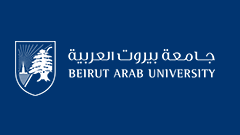Abstract
This paper presents effective ideas for using technology in design studio courses. These courses are based on some small well defined projects during the semester, in each of these projects students will pass through design process contain some clear steps. The attempt of this paper is to integrate technological methods in each stage of the design process. The paper first will outlines (agree on) five main stages in design process starting from research stage until the final jury presentation and then comes the faculties’ summative assessment. In each step technological modern methods are introduced. E-learning-podcasting, social media, smart boards, virtual client meeting, 3D cinema shows, coogle brainstorming, design games and finally using smart rubric for grading student’s projects will be involved in design steps to enhance students learning. Nowadays faculties have become increasingly committed to making teaching and assessments more effective in promoting student learning. This paper will presents HOW technology CAN enhance student learning in Design Studio courses especially in this era, where the technology not only yielded new tools and techniques, but have shaped a generation of students who seamlessly engage in the online and real world environments in many facets of their lives. Two types of data are considered for analysis: student’s level of satisfaction and expectation through surveys, Faculty Personal experience involvement. The paper will suggest a model for the design studio incorporating all the technological interventions in different stages of the design process.
Keywords
Architecture Education, Technology, Smart rubric, Design Studio
Disciplines
Architecture | Arts and Humanities | Education | Engineering
Recommended Citation
Basheer, Rania and Kazimi, Fatima
(2016)
"ENHANCING ARCHITECTURE EDUCATION WITH THE USE OF TECHNOLOGY,"
Architecture and Planning Journal (APJ): Vol. 23:
Iss.
2, Article 12.
DOI: https://doi.org/10.54729/2789-8547.1081
Included in
Architecture Commons, Arts and Humanities Commons, Education Commons, Engineering Commons

